|
by: Lesther Pangilinan (2KK Scholar) 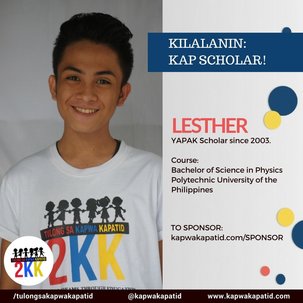 Last September 2016, alongside with my co-scholars, we visited one of the famous museums in Metro Manila - the National Museum of the Philippines, located in Ermita, Manila. The National Museum is an institution that is currently preserving the national collections made by infamous and famous painters, sculptors, writers and other artists, as well as contemporary ones. The National Museum has sections like the National Art Gallery, Museum of the Filipino People, Planetarium and the Regional Museum. 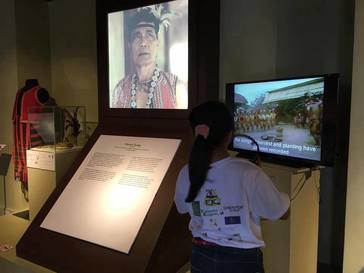 The Museum gave us students the opportunity to see these precious artworks made by our fellow Filipinos. Unfortunately, we weren’t able to visit all of the sections I have mentioned. We just went to the Museum of the Filipino People and the main hall of the National Museum. Even so, I was very glad that these creations was collected and handled carefully, and I think that it is a good way to bring inspiration to young generations, when they see the works that have been made by their ancestors. I believe that it is also good to have these in display for every Filipino, and for other nationalities as well, showcasing our history and artworks done by our fellow men. Seeing these pieces made my heart flutter with anticipation and excitement. I have wondered how people lived in the old times. Pondering what materials they used and how they used it. I was also astonished and confused by my own questions. And I even wondered if my drawings and writings could ever be displayed together with these creations.
0 Comments
Written by: Jastine Rosit “Educating the mind without educating the heart is no education at all.” It is one of Aristotle’s words of wisdom. Certainly, the heart and the mind are intertwined in the true essence of education. Feeding the mind with overflowing knowledge while leaving the heart empty would not capture what education is truly about. Thus, it requires a great sense of mission and dedication to teach both the mind and the heart. For thirteen years, Tulong sa Kapwa Kapatid Foundation (2KK) is transforming lives and living out this holistic definition of education. 2KK is helping our fellow Filipinos in “realizing dreams through education”. This mindset motivates and propels every member of the organization to be an instrument of change for more than a decade. They enlighten the path of the underprivileged youths who are living in the shadows of poverty. They give hope through education; through education they build dreams; through building dreams, they build better, happy, and more empowered lives and homes. Let us take a look on one of the stories of hope - a small leap of faith that led to big ripples of change. Mickel Dublin ,19, is one of the scholars of 2KK. He is taking up BS Criminology, and he is walking through his childhood dreams of being a policeman. For this senior college student, “education is not only gaining knowledge. It is also [about] having discipline and love [with what you do].” Tracing back to 2008, Mickel has started his journey with 2KK. He was just an eleven year old child who viewed his dreams as unreachable stars; the clouds of doubt and uncertainty filled his thoughts. “Before, I don’t believe that I can reach my goals in life,” he shared. But through the help of 2KK, his outlook in life has changed. He has mustered every ounce of courage and optimism in his system. He has realized that there are ways to achieve his goals and he would not walk through it alone. He regains his strength and will power to take little steps forward. He carries his dreams in his pocket as his journey begins. It may be challenging and tough but Mickel is very eager and inspired to reach his goals. “I want to become a law enforcer someday and I will achieve it because 2KK is helping me,” he said. “It is also my wish to have a simple family and to live in a simple house, and get a permanent job,” he added. One of the most valuable lessons that he received from 2KK is to always set a vision and to always prepare himself to cross the path that will lead to his destination. No one can tell him that he cannot do it because he just needs to whisper to himself that he has the potentials to make it. He also realizes that he has his fellow kapatids who will guide and support him. “Thank you so much to 2KK for your love and trust, and for believing in us that we can achieve our goals in life and be a successful person,” he gratefully said. Just like how we define education that traces its core in the heart and the mind, Mickel personifies this meaning. He also wants to share the learning and opportunity that he received as one of the scholars of 2KK. This is his way of educating and imparting the life lessons that he obtained. “I want to serve the community. That’s how I’ll payback the help of 2KK to me.” Undoubtedly, he acknowledges that “educating the mind without educating the heart is no education at all.” It is by continuously loading his tank of information and filling the spaces of his heart that he truly learns. He is our kapatid and he has been with us all through this time. It has been thirteen years of being in mission to educate (the heart and the mind), and every year, our family grows. In as much as we plant seeds of hope and inspiration, we reap dreams coming to reality. To be a YAPAK Sponsor, click here to find out more. by Trisha Balan 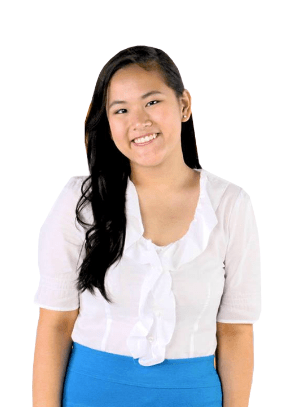 Filipinos are fond of nicknames. I have quite a few. My name is Trisha but I am called Shasha, Chubs, Twizzie, and many others that I would not like to discuss. My favorite nickname, however, is Ate Trisha, which translates as "older sister Trisha." It was given to me by my 45 younger siblings. In the gritty, crowded heart of Metro Manila, tucked away from the expensive high-rise buildings and suburban paradises of the middle class, there sits an impoverished community, surrounded by mounds of garbage and decay. This small community is called Payatas and it is home to my 45 little brothers and sisters. They are not related to me by blood, but they are my family through Tulong Sa Kapwa Kapatid (2KK), an outreach organization that aims to provide more opportunities and values education to the youth in Payatas. Every other Saturday, I am given the chance to guide and teach these children life lessons they can carry with them for the rest of their lives. For the past four years, I have learned to become a teacher, a guidance counselor, an event organizer, a playmate, a friend, and an older sister to these kids. Payatas proved to be my best classroom. I might not have learned how to solve algorithms or how to analyze a villanelle poem, but I did learn how to be all these things for my brothers and sisters. Being an older sister is my talent and it is my passion. As the youngest in my biological family, I never thought it was something that I would be good at, but I soon discovered that caring for others is something built within me. As Ate Trisha, I get to see into the minds of my little brothers and sisters. I learn about their lives, discover their dreams, and I grow to care about them. As an older sister, I think of myself less and it gives me purpose in life. Despite my interest and my passion for this cause, more than once, my friends and even members of my family have told me to quit my organization and to pursue different interests. They believed it was a waste of my time to be with these kids, that I had nothing to gain from being with them. What they said was true, I had nothing to gain, but I did get to find out who I was. I could have done a lot of other things if I was not involved with these children. I would have led a very different life, but I do not regret it. I love being Ate Trisha. I became who I am because of my little brothers and sisters. Gandhi once said, "the best way to find yourself is to lose yourself in the service of others." I was lucky enough to find myself through these kids. Being Ate Trisha makes me feel close to them and it makes me feel unique. They have given me my identity. Being an older sister may not sound special, but to me it is. After all, who else can say that they have 45 younger siblings? To be an "Ate" or a "Kuya", a Kapatid, you can volunteer here. |
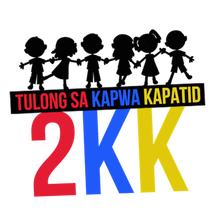
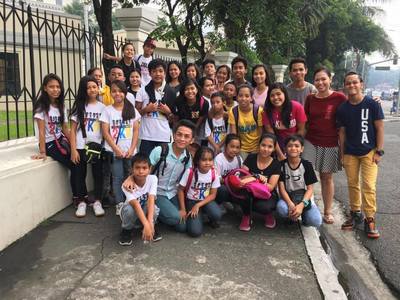
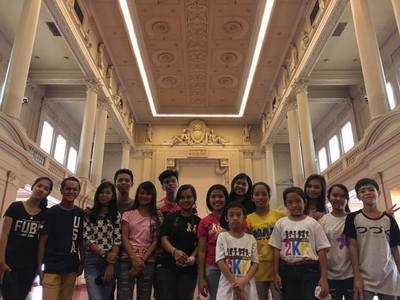
 RSS Feed
RSS Feed
